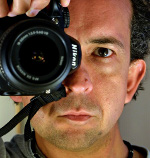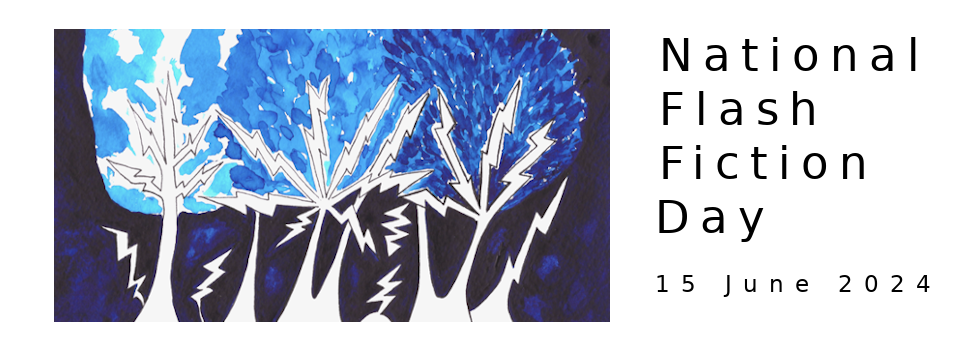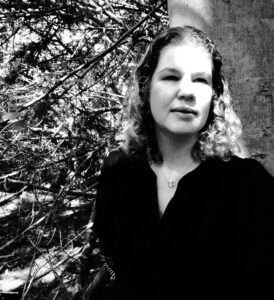Welcome to the sixth in a series of interviews with this year's National Flash Fiction Day anthology editors and micro fiction competition judges! This week, Santino Prinzi is in conversation with micro fiction competition judge, Kevlin Henney, who discusses clichés, live performances, and editing tips...
Santino: Kevlin, you’ve read, written, and judged many micros in your time. What, in your opinion, makes a micro pop?
Kevlin: Like anything that pops, there has to be some kind of energy to release. There’s not a lot of space in a micro, so use of language is essential not just structural. Whether the language is shaken or stirred, it can’t be flat — language is where that released energy comes from.
Depending on the story, the language can be spare, novel, humorous, grave, playful, meditated, slow, fast, but it should definitely be. Every word, every construction, is working in a gig economy, passing through but holding down multiple jobs. They have their grammatical roles to fulfil, but they also need to pass interviews on flavour — or feel or colour or whichever sense metaphor captures for you the quality of the story you sense and want the reader to experience — pace, mood, appropriateness — don’t stumble from pathos to bathos. Write but don’t be writerly.
Santino: Where do you draw inspiration for your own work?
Kevlin: Many of my stories grow from moments, either imagined or observed. A toddler unlocking the door of a public toilet onto a concourse, mother not yet ready. A teenager discovering a seam on her neck. Being served an empty plate in a restaurant.
And then this moment sparks another thought or shacks up with another moment... and before you know it a story is growing, whether gently below the surface of your awareness or in a mad rush through your fingers onto the page. There’s rarely a big idea or a strict intention — if those are present in the final story, they are usually late arrivals, realised sometime after the small idea or the accidental insight.
Santino: I have seen you read your flash fiction at various live events and you always read with energy and character. How important do you think going to live readings of flash fiction, or any literature, is?
Kevlin: Where the written word counts as a single medium of expression, reading counts as many. The written word can come alive through sight, through sound and, via Braille, through touch. Reading is sensual.
Giving life to fiction through live readings adds a public performance side to the otherwise private life of personal reading. Stories can support public and private experiences, extrovert and introvert contexts, the prosocial and the hermetic. A live reading can show both listener and reader different sides of a story, it can bring stories to new audiences, it can contribute to the experience of an event, it can be downright fun!
Compared with longer forms, flash fiction is the fiction of minutes not quarter hours, falling comfortably within the limits of attention span, jostling with poetry as a natural fit for this platform.
Santino: People argue that the key to writing great flash fiction isn’t only in the act of writing itself but in the editing, too. Could you please share your favourite writing and/or editing tips that help you transform the idea in your head into the piece of writing you wish it to be?
Kevlin: Editing is where the story can go from toddling around, bumping into inconsistencies and not yet sure of itself, to coming of age, with a sureness of purpose and more solid wordfall.
For me, editing is where I wrangle the words and sentences to defamiliarise and refamiliarise myself with the story. Work out what story is being told while working out how to tell it. Noise words, jobless clauses and filler sentences served a supporting role in the initial draft, but their contract’s over, so let them go.
But what about repetition and cliché? Repetition is double edged (or triple, quadruple...). Conventionally repetition is something to strike out, but repetition can lend a story foreshadowing, theme, pace and rhythm. The answer is not as simple as three strikes and it’s out.
And rather than say that clichés should be avoided, any cliché should either tell us of era or of person — if a cliché has a strong association, work that angle, you’re worldbuilding with an economy of words — or it should be played with and subverted — surprise the reader! But clichés that just fill the space don’t spark joy, so bin them.
Santino: If you could liken flash fiction to a piece of technology, fictional or real, what would it be and why?
Kevlin: Flash fiction is a smartphone. It fits in your pocket but contains the world. You can get lost in it. You can show others. You can take it anywhere and anywhen.
 Kevlin Henney writes shorts and flashes and drabbles of fiction and books and articles on software development. His fiction has appeared online and on tree (Daily Science Fiction, Litro, New Scientist, Physics World, Spelk, Reflex Fiction, LabLit, Flight Journal and many more) and has been included in a number of anthologies (The Dark Half of the Year,North by Southwest, We Can Improve You, Haunted, Salt Anthology of New Writing, Ripening, Sleep Is a Beautiful Colour and many more). As well as having his work rejected and make no impression whatsoever on writing competitions, Kevlin’s stories have been longlisted, shortlisted and placed, and he won the CrimeFest 2014 Flashbang contest. He reads at spoken word events, winning the National Flash-Fiction Day Oxford flash slam in 2012, and has performed his work on local radio (BBC Radio Bristol and Ujima). Kevlin has been involved in the organisation of the Bristol Festival of Literature and events for National Flash-Fiction Day. He lives in Bristol and online, where he can stalked as @KevlinHenney on Twitter, @kevlinhenney on Medium and @kevlin.henney on Instagram.
Kevlin Henney writes shorts and flashes and drabbles of fiction and books and articles on software development. His fiction has appeared online and on tree (Daily Science Fiction, Litro, New Scientist, Physics World, Spelk, Reflex Fiction, LabLit, Flight Journal and many more) and has been included in a number of anthologies (The Dark Half of the Year,North by Southwest, We Can Improve You, Haunted, Salt Anthology of New Writing, Ripening, Sleep Is a Beautiful Colour and many more). As well as having his work rejected and make no impression whatsoever on writing competitions, Kevlin’s stories have been longlisted, shortlisted and placed, and he won the CrimeFest 2014 Flashbang contest. He reads at spoken word events, winning the National Flash-Fiction Day Oxford flash slam in 2012, and has performed his work on local radio (BBC Radio Bristol and Ujima). Kevlin has been involved in the organisation of the Bristol Festival of Literature and events for National Flash-Fiction Day. He lives in Bristol and online, where he can stalked as @KevlinHenney on Twitter, @kevlinhenney on Medium and @kevlin.henney on Instagram.
SUBMISSIONS ARE NOW OPEN for this year's National Flash Fiction Day Anthology and Micro Fiction Competition. Submissions close on 15th March 2019. For more information, please visit our Anthology and Competition pages.

 Judy Darley is a British fiction writer, poet and journalist who can't stop writing about the fallibilities and strengths of the human mind. Her flash fiction and stories have been published by magazines and anthologies in the UK, New Zealand, US and Canada, including Seren Books, Mslexia, Unthology 8 and SmokeLong Quarterly, as well as in her debut collection Remember Me To The Bees. Sky Light Rain, her second collection, will be published by Valley Press in autumn 2019. She has shared her stories on BBC radio, as well as in cafés, caves, an artist’s studio and a disused church. Find Judy at
Judy Darley is a British fiction writer, poet and journalist who can't stop writing about the fallibilities and strengths of the human mind. Her flash fiction and stories have been published by magazines and anthologies in the UK, New Zealand, US and Canada, including Seren Books, Mslexia, Unthology 8 and SmokeLong Quarterly, as well as in her debut collection Remember Me To The Bees. Sky Light Rain, her second collection, will be published by Valley Press in autumn 2019. She has shared her stories on BBC radio, as well as in cafés, caves, an artist’s studio and a disused church. Find Judy at